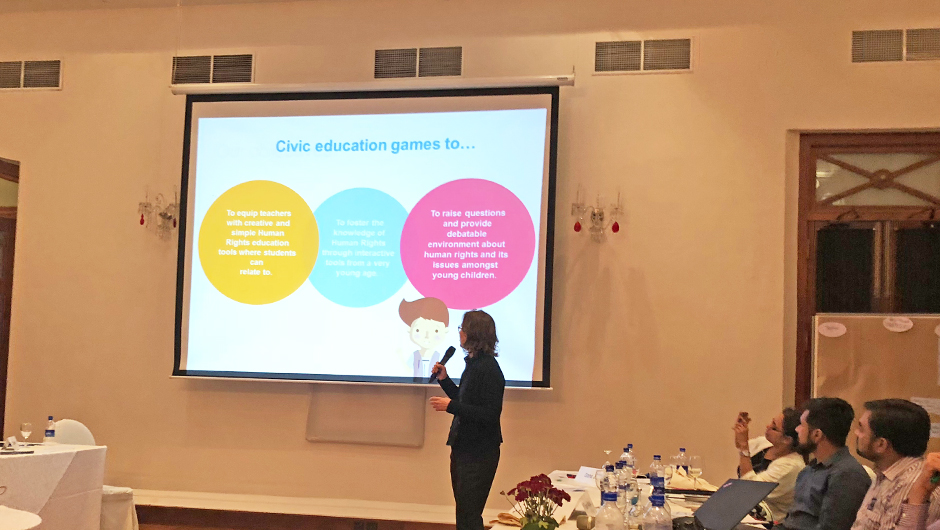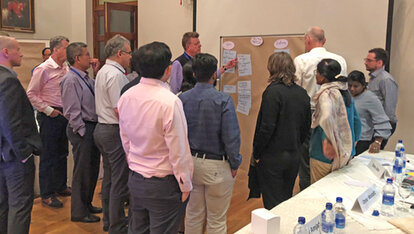Asia sets examples for effective political education

The Rights Card Game, a gamified educational tool developed by the Friedrich Naumann Foundation for Freedom (FNF) in Thailand, has caught on with students across the country in schools and universities.
Gamification, or the application of game-design elements and game principles in non-game contexts, is being employed by FNF Thailand to encourage more people to become interested in democracy and human rights. FNF has earlier rolled out SIM Democracy, a board game that simulates government policy-making, which is now being used in several countries in the Southeast & East Asia region including Malaysia, Myanmar, and South Korea, and as far as Africa in Zimbawe.
Developing education games is consistent with FNF’s goal “to be the creative innovation platform for the promotion of freedom.”
At the joint meeting between FNF Southeast & East Asia and South Asia region in Colombo, Sri Lanka on April 16-19, 2018, the Rights Card Game was presented as an example of a successful ingenious project.
“We want to develop new ideas and new ways to communicate within the Foundation and with people around the world,” said FNF Chief Executive Officer Steffen Saebisch.
FNF Head of International Program Ulrich Niemann talked about the impact that shrinking spaces for political participation have on the Foundation’s work, but remained optimistic.
In Sri Lanka, the election of the “government for good governance” in 2015 signaled hope. FNF now closely works with the Office of the Secretary-General of the Parliament in setting up its parliamentary research and training center, the first of its kind in the country.
“This is an Important step to ensure the highest quality of parliamentary work,” said Dr. Wolf-Dieter Zumpfort, member of the FNF Board of Directors. “Good decisions can be only be based on a solid foundation of knowledge and research. FNF is honored to be part of this initiative,” he added.
FNF Sri Lanka has also actively created platforms for the discussion of constitutional reform in the country. It has supported an innovative artistic tool for civic education, namely the architectural modeling of the constitution, reflecting its evolution from 1972. “Our task was to make constitutional reform more people centric, public spirited, and humane,” shared FNF Sri Lanka Country Representative Sagarica Delgoda.

FNF Regional Offices for Southeast & East Asia and South Asia discuss joint activities